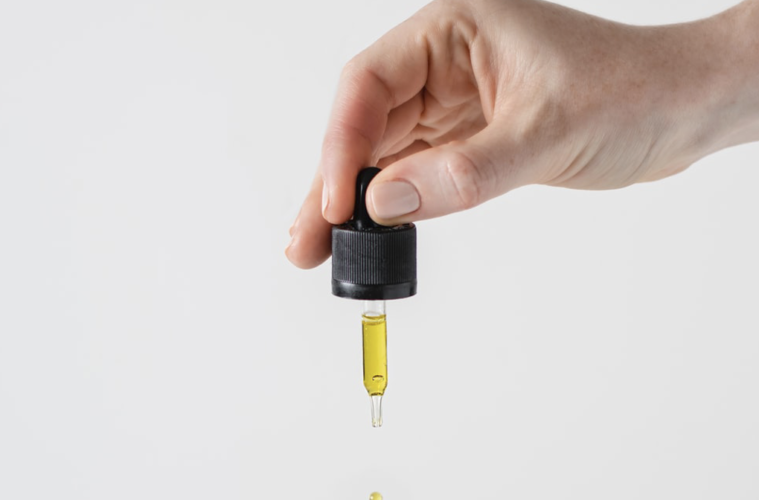Ever since news broke of the Farm Bill, Delta 8, the new bud on the block, has been flying off the shelves. This intoxicating cannabinoid distilled from hemp is making waves, especially in states where marijuana isn’t legal. Consumers all over the country are trying to get in on the high and CBD retailers are reaping all the benefits. And that too, legally!
Delta-8 is currently under spotlight and is getting all sorts of attention. Needless to say, it has quickly become the talk of the town for its exciting and intoxicating properties. A fraternal twin to the Delta 9 THC, Delta 8 is also a compound of cannabis with less potent effects. However, the only difference between Delta 9 and Delta 8 stems from the fact that one is legal and the other, not so much. While federally, Delta 9 is meant to be sold in smaller quantities, there is no limit as such on the consumption of Delta 8. According to the Farm Bill of 2018, the law has made it permissible to sell and consumer cannabinoids derived from hemp.
In fact, the sales of Delta 8 have been soaring so high that it has now become commonplace to be able to find access to these products absolutely anywhere. Legal cannabis dispensaries can be found at local gas stations, bodegas, head shops and the likes.
So, if it’s being sold so openly then it must be legal right?
Well, that’s when we refer back to the “complicated legal status” that Delta 8 holds. Though it is advertised as such, many lawyers believe that Delta 8 consumption and sales are in somewhat of a grey area. And those who wish to make profits off of it have found loopholes to do so. In fact, trade groups within the hemp industry oppose the idea of Delta 8 becoming legal.
This may be because the hemp industry takes a lot of pride in being distinct and traders within do not wish to associate themselves with the cannabis industry. When thinking about THC, one might naturally come to the conclusion that regardless of the name, both pretty much fall under the same category. Though marijuana and hemp grow out of the same plant, hemp is quite multipurpose. It’s used in making most things – food, clothes, CBD, you name it. However, within the hemp industry, producers draw the line when psychoactive effects are involved.
In order to avoid confusion, many sellers label Delta-8 THC as CBD to maintain the legal status. Many states are now trying to investigate loopholes so that Delta 8 can be sold under regulatory conformities.
States such as Oklahoma have a pending bill that under regulatory rules defines marijuana as a product made up of delta 8 THC, Delta 10 THC and the more commonly known, Delta 9 THC. The state of Alabama is also seeking to similar status changes so that loopholes can be avoided once and for all. In Washington, the Washington State Liquor and Cannabis Board issued a policy that allows Delta 8 obtained from licensed cannabis but not unlicensed ones. In keeping with the medical and adult-use cannabis laws, Oregon is also aiming is trying to formulate a fitting definition for artificially derived cannabis. North Dakota has also voted to come up with an entirely new definition of THC, one that is accepted and agreed upon by all legislative bodies. With so many states working to bring about change and rid themselves of grey areas, questions still remain.
It is important to comprehend that as per the Farm Bill of 2018, according to the Controlled Substances Act (CSA) hemp and its derivatives are not prohibited as long as they remain under the legal limit of 0.3% THC. The Bill also suggests that there is no ceiling on consumption as long as Delta 8 is derived from hemp. As of August 2021, the DEA has also announced that not only end-products but all products, including hemp, that contain more than 0.3% THC are illegal. Increased potency even in the case that its temporary and effects are short lasting, it is prohibited. This can be quite risky for hemp producers because they need to ensure that they do not exceed the legal limit under any circumstances.
Due to the complexities surrounding the situation, ongoing debate among lawyers continue while they struggle to figure out if producers or consumer might be prosecuted based on such a small technicality or whether the DEA is even allowed to make such decisions for prosecution. Either way, the subject remains unclear and answers vary from person to person. One thing we do know for sure is that, whether they like it or not, processors and producers must tread lightly on irregular legal ground.
Evidently, the hemp industry is relatively new to the market and hence needs time to unravel the complications and work out certain legal kinks. Each situation differs from the other and one specific answer might not be applicable to the hundreds of questions.
Advertising disclosure: We may receive compensation for some of the links in our stories. Thank you for supporting LA Weekly and our advertisers.


